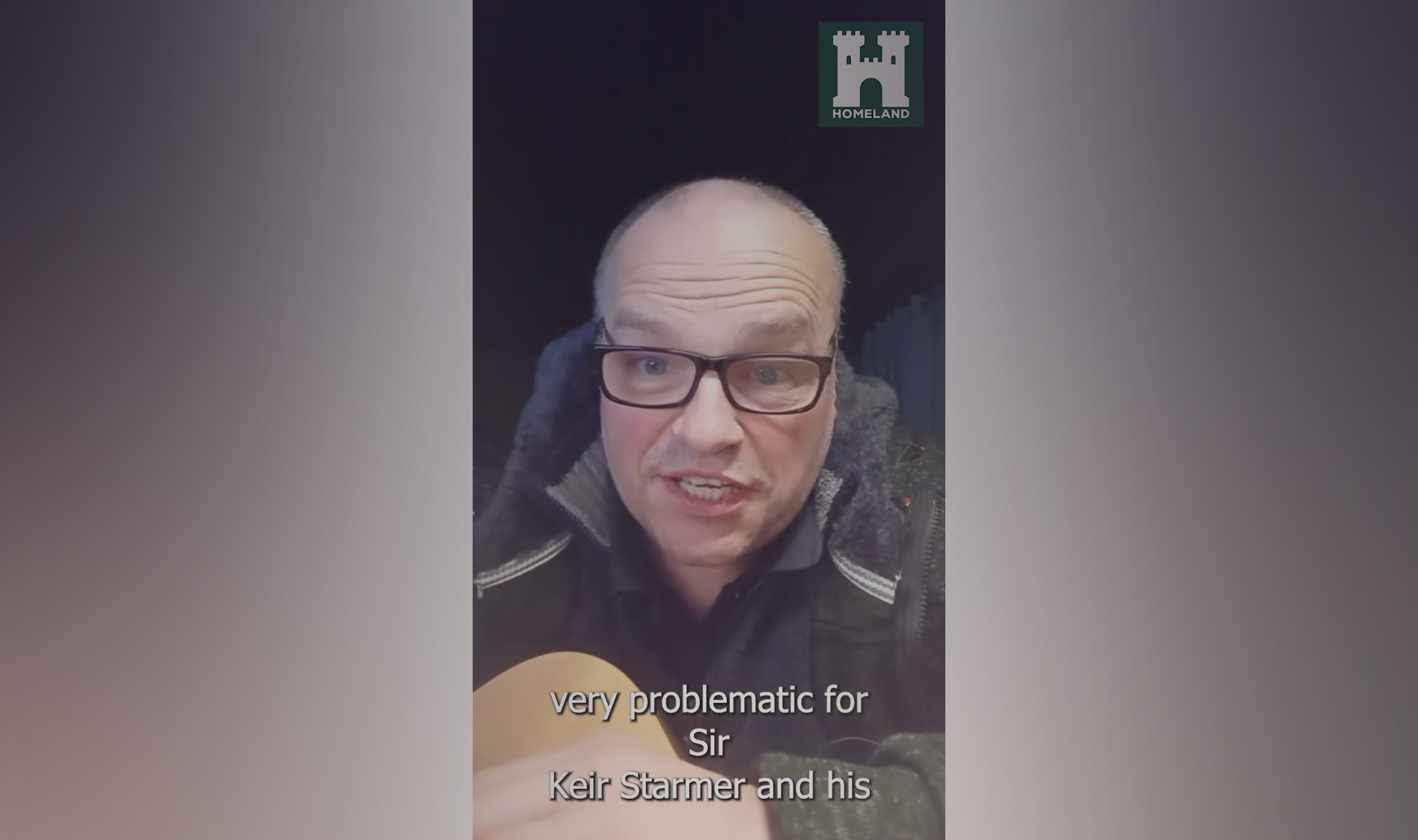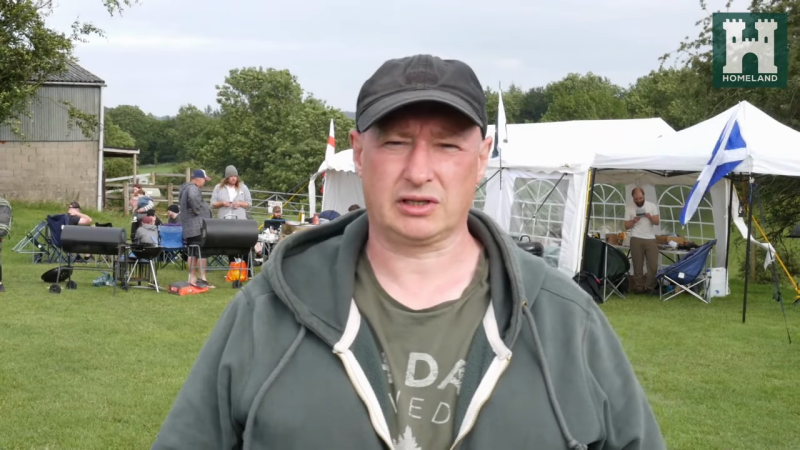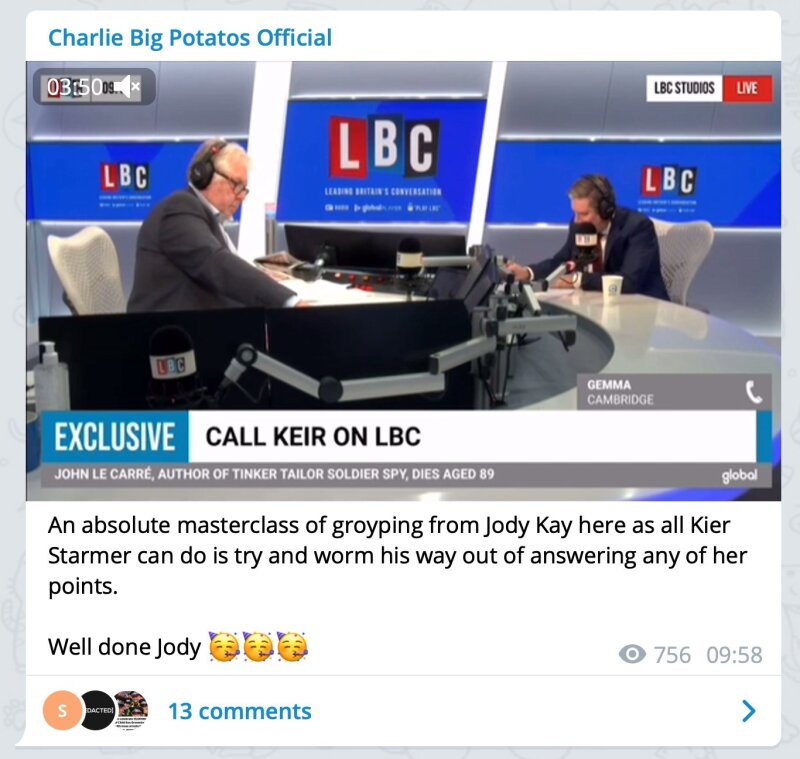Last month, the fascist Homeland Party (Homeland), the breakaway split from Patriotic Alternative (PA), scored an unexpected coup within the ethnonationalist far right. It officially registered as a political party with the Electoral Commission - something PA has failed to do for years. The fledgling party has bragged about its success and criticised PA for failing to do the same, justifying its split and explicitly calling for both current PA and former British National Party (BNP) members to join Homeland.
Homeland’s ability to contest elections will raise their profile in areas it is targeting and provide it with further opportunities to inject its racist politics into communities. Homeland has paired its miniscule presence on parish councils (so far members have stood only as independent candidates) with innovations in other areas, particularly its growing presence on the now dominant social media platform TikTok.
Until now, much of our work has centred on PA as the dominant grouping in British fascism. But following PA’s split and the emergence of Homeland last year, the centre of gravity within the British far right has shifted, as we outlined in an initial report on the breakaway group.
As a competitor with PA, Homeland is more clearly set on emulating the ‘ladder strategy’, first developed by the National Front in 1987 and then used by the BNP to become the most electorally successful fascist party in British history. Homeland’s chairman, Kenny Smith, was a national officer in the BNP and former BNP organisers, who have mainly given PA a wide berth, have already started to join Homeland.
Homeland has been quick to contrast its success with PA’s repeated failure to register with the Electoral Commission, which they have attributed to both incompetence and a reluctance on the part of PA’s leadership to register. An article on Homeland’s website by nominating officer Anthony Burrows (who previously had his shotguns seized by police and firearms licence revoked after we exposed his real identity) attacked PA’s failures, opening with: “How do you get registered? The short answer is: don’t lie. Obey the law. That’s it; the case is closed!”
PA leader Mark Collett hit back with a stinging and extended personal attack on Burrows, in which he implied the Homeland founder was a state asset who dodged prosecution for sharing the same terrorist material which in June 2023 landed PA’s national fitness officer Kristofer Kearney a significant custodial sentence.
Contesting elections is part of the ‘ladder strategy’, which chairman Kenny Smith has advocated within the party. Homeland seeks to build power within both local politics and civil society organisations. We can expect Homeland to follow the BNP in targeting communities with specific local grievances, such as the housing of asylum seekers. But Homeland’s activity on TikTok reveals a willingness to experiment with its tactics and messaging, with the party establishing a new avenue to reach audiences across the country.
Homeland’s presence on TikTok is small, boasting only 1460 followers and 20.8k likes with posts on the platform averaging around 400 views each. But the party’s channel and reach is growing, with some Homeland videos reaching tens of thousands of viewers.
 Simon Crane, Homeland organiser and frequent TikTok presenter
Simon Crane, Homeland organiser and frequent TikTok presenter Importantly for Homeland, TikTok’s demographics skew towards young people and will allow the party to reach an audience who would otherwise be unlikely to encounter them. Analysis of its strategy on TikTok shows an increased sophistication in both the presentation of videos and the ability to have their content picked up by the platform’s recommendation algorithm. This stands in sharp relief to their YouTube channel which has failed to achieve the same virality.
Homeland’s most viewed videos on TikTok reveal its strategy for gaining exposure on the platform. Posts such as ‘Jeremy Corbyn new party’ (88k views) and ‘British Army needs conscription’ (30.8k views) exploit the TikTok algorithm’s preference for new trends and breaking news stories to reach beyond the party’s ethnonationalist niche and reach a broader audience.
At the time of writing, a video about Jeremy Corbyn is Homeland’s most viewed post on TikTok. In it, Simon Crane, a former regional organiser for PA in Scotland and now prominent figure within Homeland, comments on the possibility that Corbyn will set up a new political party to contest the upcoming general election. A review of the comments on this video indicates that the majority are from supporters of Corbyn, expressing support for the former Labour leader and a prospective new party. Very few commenters seem to be aware of Homeland’s politics. This is likely due to TikTok’s user experience, which emphasises superficial engagement with large amounts of content over a short period of time. The hashtags accompanying this video are equally anodyne, avoiding the possibility of TikTok removing the video if they were to ban hashtags, as it did in 2019 when it removed #GreatReplacement and #TommyRobinson.
Another video, titled ‘British Army needs conscription’ follows the same tactic of jumping on a breaking news story to catch views, yet takes a different tack. Instead it follows a familiar reactionary internet argument which decries Black Lives Matter and the LGBTQ+ community as infringing on the rights of ‘straight white men’. While still ostensibly engaging in commentary on a current news topic, the video’s argument bridges the gap between accepted forms of conservatism and overt far right politics, in order to draw sympathisers towards Homeland’s ethnonationalist project.
Other posts, such as ‘15 YO girl raped by Iraqi immigrant’ (71.1k views) rely on more familiar tropes used by the far right to whip up anti-immigrant sentiment. In another video, a Homeland member compares the genocide and mass killing of children in Gaza to child sexual exploitation scandals in the UK. As with the Corbyn video, the hashtags used for promotion remain general and non-emotive (#ImmigrationReferendum, #Migrants, #Nationalism) to increase the chance of it appearing in TikTok user’s feeds.
 David Gardner, Homeland member and TikTok presenter
David Gardner, Homeland member and TikTok presenter Homeland is still experimenting with its output on TikTok. Yet it appears to be consciously adopting a social media strategy which proved successful for PA leader Collett. Before he was banned from the platform in 2020, Collett amassed nearly 100,000 subscribers on YouTube, in part by producing content on trending topics while pandering to popular reactionary arguments which bridge the gap between conservatism and the far right.
Homeland appears to have a clearly articulated strategy for growth and a dedicated team to carry it out. It has achieved what Collett has deemed impossible with its registration with the Electoral Commission and has identified local disputes in which it can insert its racist politics. The party has also attempted to mask the extremity of their positions in order to reach out to more conventionally right-wing reactionary sentiment.
In contrast, PA has failed to register as a party, is mired in a string of convictions for terror offences and crimes of racial hatred, and has repeatedly doubled down on explicit anti-Semitic and fascist sentiments in both its messaging and affiliations to groups such as the openly neo-Nazi British Movement and Highland Division. The two sides will not be easily reconciled and an enduring split in the British ethnonationalist far right seems likely.
The large majority of users who stumble across Homeland will not be sympathetic to the party’s neo-Nazi ideology. But without intervention, the party will become more established online and in local communities. A presence on TikTok will widen its ability to propagandise among younger generations. TikTok is ultimately responsible for what is posted on its platform.
Homeland’s new found legitimacy as an officially registered political party is a sign the British far right is entering a new phase of activity to which anti-fascists must adapt. It requires us to look back to the struggles against the BNP in the 2000s, where the far right combined community organising with contesting local elections to startling effect.
If you have any additional information regarding our investigations or any other far-right organisers or activists, please reach out to us confidentially and securely via encrypted channels, using Signal at +447459331025 or via email at [email protected].
Your contributions are invaluable to us, and we sincerely appreciate your support.
Homeland Britain



